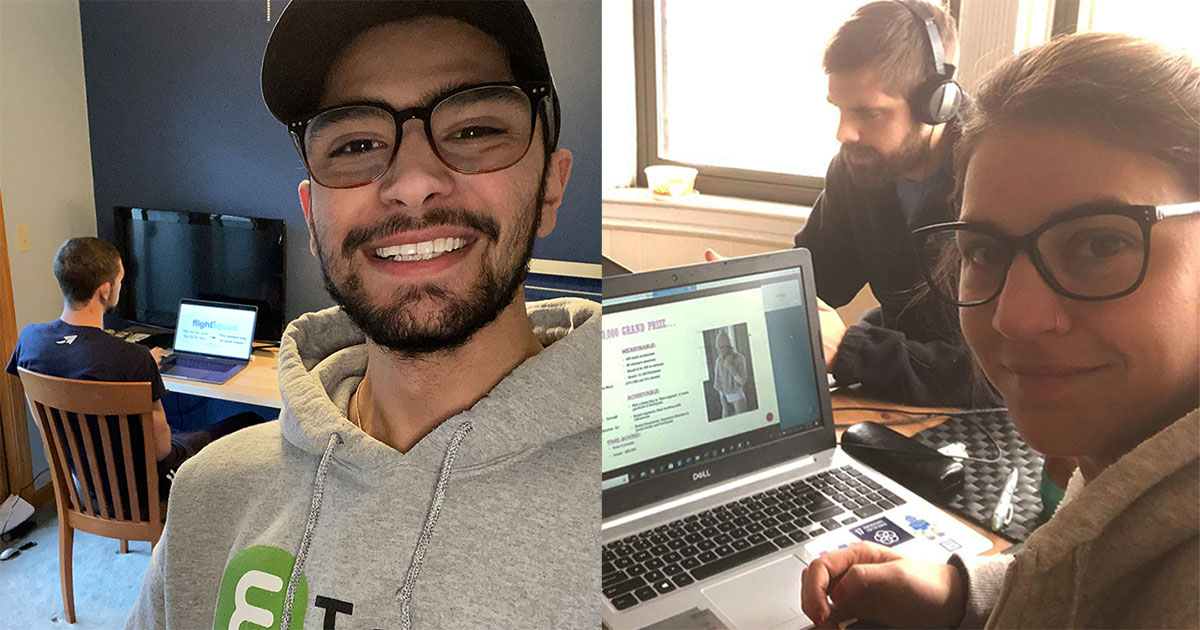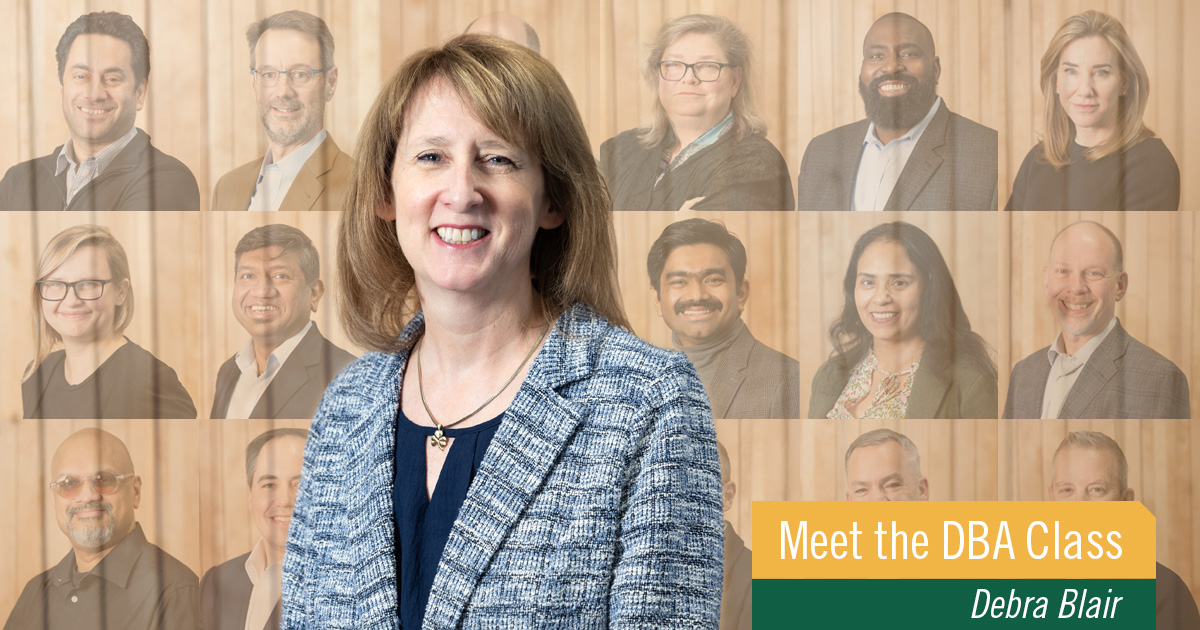With Centers and Institutes, Experiential Learning Carries On

When classes shifted online in March, the full Babson College experience shifted online along with it.
A signature of that experience: hands-on, immersive, experiential learning.
From a distance and with groups of students from around the world, that experiential learning continues remotely in and out of class.
Babson’s Centers and Institutes have long been hubs of immersive experiences. They continue to offer experiential programs today. Some are virtual versions of long-standing traditions, and others are brand new, innovative approaches to getting students to roll up their sleeves and take action.
“A cornerstone of our centers and institutes is ‘action’ in Entrepreneurial Thought & Action®. Within days our team made the switch to provide resources, connections, and content to meet the needs of our students and alumni. The change to an online environment has catalyzed several new programs and learning opportunities that we will be pursuing in the next few months,” said Vice Provost of Global Entrepreneurial Leadership Candida Brush.
Below are just a handful of the many experiential events and programs being hosted for students by Babson’s Centers and Institutes.
The Arthur M. Blank Center for Entrepreneurship
The annual B.E.T.A. Challenge was one of the first big Babson events to go online this spring. But, it’s not the last program available from the Blank Center.
Through the Butler Launch Pad, the Blank Center team is hosting virtual office hours with faculty advisors and experts, it’s regular How2Tuesdays, and the new P2P Connect, a peer-to-peer connect series. In P2P Connect, entrepreneurs can drop in and work together on problems they are facing to get real-time feedback and determine actionable steps.
Come June, they’ll offer the Summer Catalyst, a 10-week virtual summer accelerator. It shares many elements with the traditional Summer Venture Program, including hot seat pitching sessions, and skill-building workshops.
The Center for Women’s Entrepreneurial Leadership
To keep the community connected, CWEL and the Women Innovating Now (WIN) Lab® launched a weekly webinar series for women founders covering topics that have been requested by entrepreneurs across all of the center’s programs. This came shortly after the Boston WIN Lab took its annual finale event online, shifting an in-person pitch competition to a live-stream session in a matter of days.
All student programs, including CWEL Circles and mentoring sessions, a Spring Soiree celebration for women’s leadership scholars, and a Babson Senior’s panel offering advice for incoming students, have shifted online. In addition, the Diana International Research Institute (DIRI) has launched a series of surveys to better understand what unique challenges women entrepreneurs are facing during the global pandemic in order to inform and develop new content and programming for Babson student and alumni entrepreneurs.
The Lewis Institute for Social Innovation
Conversation has long been at the heart of the Lewis Institute’s programming via Uncommon Tables. Those conversations continue via webinars in this remote environment, and will throughout the summer. They’ve also launched open office hours for drop-in conversations with Cheryl Kiser, executive director, and Emily Weiner, associate director.
The team is creating more Inventureships, Babson-paid or credit-bearing fellowships that allow students to invent their social innovation project that uses ET&A™ to accelerate social and economic impact. The institute also pivoted its FutureLab on Mobility course, funded by the Toyota Mobility Foundation. Students collaborated with community health centers, focusing on how COVID-19 is magnifying inequity issues like health care access and social isolation of the very poor to the very old.
The Stephen D. Cutler Center for Investments and Finance
Access to the Cutler Center’s Finance Lab continues remotely. Students can access the analytics offered in the lab, and faculty continue to integrate tools like FactSet and Bloomberg into courses.
Guest speakers and mentoring continue to be a pillar of the Cutler Center’s ongoing offerings—they recently brought investor Dennis Hong to the Babson College Fund class, and opened the opportunity to the graduate finance club. Mentors are encouraged to discuss the impact of the pandemic and recent market volatility on any upcoming summer internships or job offers students have received. And, the Cutler Center discusses the financial impact of COVID-19 in a weekly webinar series.
The Institute for Family Entrepreneurship
At the core of experiential learning in IFE is family entrepreneurs sharing their experiences. Those conversations continue online. Guest speakers share their family and personal stories, then attendees break into small groups for conversation.
This case study-based discussion also happens via a course page on Canvas. The page includes discussion boards where students can share how their family’s businesses are navigating the crisis, and share ideas with faculty and with one another.
Posted in Community



